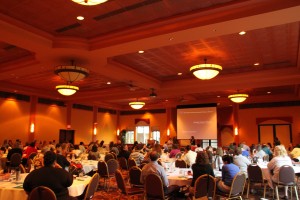
The most ironic construction sign of all time...
For decades, I have been saying that we have it backwards when it comes to men, masculinity, and vulnerability in relationships. Popular culture always frames male-female relationships in the context of the female being the needy, clingy, codependent, commitment-minded one. In these scenarios, the male is tough, independent, seeks sex without intimacy,and tires easily of the clingy gal.
However, even as a male raised in a masculine-dominated culture, I’ve long been aware of the reality of the vulnerability, interdependence, and – dare I say – neediness inherent in male identity lingering just beneath the surface of the stoic, macho façade.
See, this is part of the masculinity trickery: we need to feel superior, so we’ve crafted and promoted a worldview in which women are the ones who feel vulnerability, who are needy, who invest emotionally in relationships. We link these things to feminine identity and label them as less-than-us, thus paving the way for perpetrating all sorts of in-humane things upon them.
But, being human, we too invest emotionally in relationships. Indeed, one need look no further than the statistics on domestic violence, which clearly indicate that women are at greatest risk of losing their lives when they are ready to or are in the process of leaving a male partner or spouse. Why else would this be, if not for the fact that men feel incredibly afraid of being alone, being abandoned, and a sense of failure (of the relationship ending), so much so that they cross the line and perpetrate violence against someone who they purport to love.
Salon.com has recently run two articles highlighting recent research which corroborate men’s own humanity, despite our attempts to suppress it.
The first article, from back on May 18, declares that “even men get baby blues”, citing an AMA study that indicates fathers suffer from a form of postpartum depression. The second, more telling article, from on June 11 explains that men suffer in the wake of relationship break-ups because they do not have the means to cope with the feelings that arise. Well, not safe, productive means; unless you think drowning your sorrows qualifies.
I’m glad there is emerging research in this area, and I encourage more studies be done. But, this, for me, falls under the category of “why do we need science to prove this? isn’t it self-evident?” Sadly, no. Sadly, the dominant stories of masculinity, and femininity, and of the supposed gulf between us (and, yes this is overlooking the very fact that a binary approach to gender is in itself problematic)Â keep us locked in the illusion that feelings are weakness, rather than a natural, human part of, you know, being alive.
I agree with Salon author Jamie Kapalko, who opines: “…maybe we should all be encouraging more media portrayals of men discussing their [feelings]…”; not just because I stand as an example of a male who isn’t afraid of being in touch with his feelings, but because some of the most powerful, awe-inspiring, and memorable moments of the past eighteen years I’ve spent doing violence prevention work have been when men have circumvented the social barriers and allowed their full humanity to express itself.
It may seem paradoxical, but I think the more we remind men of their own humanity, the more we pave the way to them understanding, on a deeper-than-surface-level, the humanity of women.
– stephen
Violence Prevention Communications Coordinator






